Which God was asked
The God
Was answered
Who is this God was asked?
The one creator.
The one beginning that which always was and always will be.
Which God was asked
The God
Was answered
Who is this God was asked?
The one creator.
The one beginning that which always was and always will be.
It is so easy to write blasphemous Tweets, or conspiracy nonsense. Our digital age has given those who cannot find love a channel to express anger and frustration. They expose their lack of empathy, and their inability to grasp the basic peace established Via love.
I must begin with an apology to the lady who caused me to start this post. I am sorry about how things evolved, yet I am thrilled at a new beginning. I was looking forward to exploring what could be now I am.
I also appreciate how my spiritual foundation differs from many. In this post, I will attempt to share what I believe.
There are four great teachers Lao Tzu, Siddhattha Gotama, Confucius, and finally the King of Kings Jesus. To these four, we must add the Chinese, Egyptian, Greek, and the other great scholars whose words graced the libraries of Alexandra and other great centers of ancient learning.
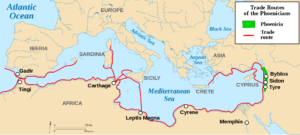
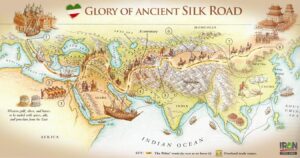 Jesus, between age twelve and thirty, I suspect, walked the northern silk route and traveled home along the southern maritime route, searched, and explored all of their thinking. He probably voyages around Europe with the Phoenicians.
Jesus, between age twelve and thirty, I suspect, walked the northern silk route and traveled home along the southern maritime route, searched, and explored all of their thinking. He probably voyages around Europe with the Phoenicians.
When he emerged, he taught.
He was a truly enlightened man.
He taught us a new way of living together.
He was the conclusion of all of the world’s thinking into one simple rule. In order to honor the creator God, we must adhere to the Golden Rule.
Stories told of Jesus established a deep feeling of love for Jesus son of Mary and Joseph a martyr who died on the cross preaching peace and harmony.
I f only those in power had embraced the love, he shared. Instead, they took control of the image of Jesus and God.
f only those in power had embraced the love, he shared. Instead, they took control of the image of Jesus and God.
Instead, those in power use his name and their version of his teaching to assure their GREEDY, that one sin, need for wealth and power. I then must simply remind all of you of what Lord Acton said – “Power tends to corrupt and absolute power corrupts absolutely” (1887).
Western civilization wants to claim it is superior. In earlier times the lord God was used to establish the power of the monarch. The hubris of one tribe to claim their Book was better than any other book is where the division across this great planet emanate.
That arrogant better than thou feeling is our greatest sin.
Look at the tower of Babel. We once were one. The people who wrote that passage wrote of our inability to work together. They blamed God for our human failures. The story is of us. Instead, we turn the text around and blame God for our inability to live together in peace.
My return from a world where chaos ultimately produced the order we see 》 Happened in 2005 while living in Canada. 19 year abroad thinking of coming home. I stopped drinking; we joined the three-week-old community church in Markham, Ontario. There, I began to study the bible. When I came back to the United States in 2008 and settled for a time on St Simons Island, Georgia, I joined the local community church. Moving up to Atlanta, I joined with my sister and attending Johnson Ferry Baptist Church.
Is that not what Jesus told us was our task?
I was taught that he died on the cross so in his name we would come together as one, both Gentile and Jew? Instead!
What happened next resulted from several evangelicals better than thou experiences.
This better-than-thou attitude caused me to run back to the Episcopal church.
Party, nationalist, MAGA, slave owner, racist, sexist, cults, schools, churches, temples … whatever holds one group together divides us. This is our failure.
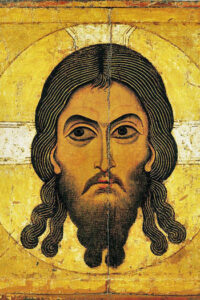
With this ancient depth, even he has not convinced those now living and those who came before to come together as one family. He asked us, in the name of the creator, to be the stewards of this planet and friends to any who enters our space.
This is who we are expected to be
Look at us today. We have not been true to his teaching.
Those that follow, including Mohammed, Luther, Calvin, Joseph Smith, Guru Nanak, and so many others, sought to promote their unique way of thinking. Instead, they ended up creating even more division.
In 2017 my mother died. It was late February. We had just elected a racist President. Two priests Robert and Tom stood talking as friends. Of two different disciplines, these men told me the local spiritual leaders met for Lunch – Dinner – Musical … whatever.
Years later Tom and Allan (Robert’s replacement) along with the local rabbi took a group to Palestine.
They told me who did not wish to be part of their ecumenical movement.
The Imam did
At the beginning of 2020, living once again in the Golden Isles, I attended three of the churches here on St. Simons. I listen with great respect to Alan & Tom as they tended to their Presbyterian and Episcopalian flocks. I also had a chance to experience Catholics sharing their faith. The feeling of being connected to God is absolutely present in each of these congregations.
I stayed away from most people during the pandemic, especially those rude people who would not wear a mask and do not want to accept the free vaccine and become part of the herd immune society.
A lovely woman asked the question of my spiritual beliefs.
https://www.albany.edu/faculty/miesing/teaching/assess/hell.html
In my many reading, this essay has caused me to want everyone to remember one thing.
The question the student causes me to ask each of you.
Ea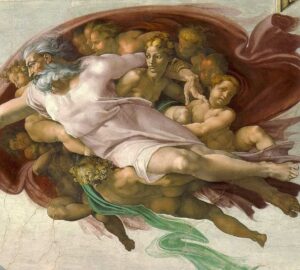 ch time I reread the student’s essay, I find the humor and feel the deeply thought words. I then wish all could accept this simple thought.
ch time I reread the student’s essay, I find the humor and feel the deeply thought words. I then wish all could accept this simple thought.
When it comes to spirituality, everyone is right. No one is wrong. None of us can truly understand the mysteries of the unknown.
While cycling one beautiful afternoon along the Chattahoochee, I listened to one particular way of interpreting the Tao.
After listening to the full series, the Trinity became nothing more than an element of the mythology used to help people find a common purpose.
For me, our purpose should be to find union with all. People should not insist we all believe in the Jesus described in the Nicene Creed. Instead,
Many tell me I must give God my full and undivided attention. They tell me he will fill my mind with heavenly wisdom and knowledge.
They tell me – he has plans for me.
They tell me they see and hear greatness in my ideas. Can it be true?
Is God calling and asking me to step up
Reach higher and prepare to do more than I can imagine?
My therapist believes I have a calling. Others cause me to fear the burden God wants to place on my shoulders. The woman who caused me to write told me she heard greatness in my ideas.
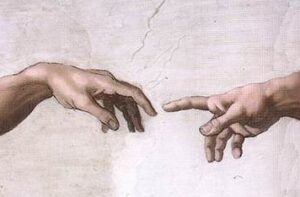
In 1976 I grasped hardware, software & networks achieving the equivalent of a 4-year master’s in computer sciences. 1982, while replacing the back pages of the WSJ with computer screens, I saw how marginal satisfaction is not a human instinct and was confronted with trying to grapple with the advantages and disadvantages of socialism and capitalism. 1986 off to Europe for 15 years.
1991, I moved into senior management and saw the world through the eyes of Mastercard and Visa. I helped them grow while focusing on securing the world of payments and heralding in eCommerce.
The fourth industrial revolution is underway; it calls us to embrace machine learning, natural language interfaces, 3D printing, and the internet of things.
How God fits in begs the question of why God would put Putin and Trump in power. Why would income inequality be so raw and health a profit center? Those waving the Trump and MAGA flags worry me. Their supremacist attitude solidifies for me one thing. Tribalism is our greatest sin.
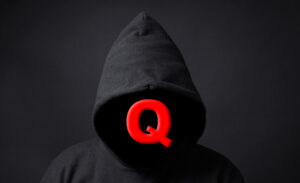 Stop believing in the absolute truth of One book. Instead, we need to collectively believe in the one creator who taught the four or more ancient scholars the truth. They all have one common message.
Stop believing in the absolute truth of One book. Instead, we need to collectively believe in the one creator who taught the four or more ancient scholars the truth. They all have one common message.
It is time to listen and embrace
The Golden Rule.
If this is my destiny, I need help. I need the OMI cheerleader. Moreover, I need to meet men and women of faith who have experienced a truth and have grown to see the truth.
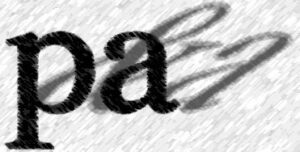

Apple exemplified an era of global capitalism that has passed from The Economist https://www.economist.com/leaders/2021/08/28/apple-exemplified-an-era-of-global-capitalism-that-has-passed
Jesus the King of the World for 18 years wandered this earth. As our teacher he stands before us with one truth. Love each other. In so doing you love and honor God.
Matthew 25:40 And the king will answer them, ‘Truly I tell you, just as you did it to one of the least of these who are members of my family,* you did it to me.’
Such big words. The idea something is once written can never be changed, altered, or deleted as well as elegant. Or that there is no need to worry about anything, what is presented simply is one instance of knowledge not until more than two can be found is there the possibility of trust. But if more than a few assemble and not sure then!
In a trustless environment, there is no single entity that has authority over the system, and consensus is achieved without participants having to know or trust anything but the system itself. A definition from one of the major institutions helping to establish this new. New what?
https://academy.binance.com/en/glossary/trustless
It is the removal of relationships so they can be replaced by something, no someone new that is bothersome. Words like usury invade reality, and a few get very wealthy as the mass spend to survive, always being driven to need more.
We have lost the ability to commune. We lost track if the responsibility to be good stewards of the garden we were given responsibility for .
https://modernconsensus.com/technology/building-digital-dollar-requires-private-sectors-help-fed-chairman/
Clearly, I am a bit behind.
I learned it in school then again at the hand of David Chaum
He taught me that if I kept the key length long the work hard and the hardware self defeating then a digital signature is absolute proof of presence under and agree set of conditions.
We then spoke of operating systems, payments, smart cards, cryptography: asymmetrical and symmetric. Rooted in PKI and the need to assume a trust less world.
Then there is money. We knew, time ago, we could use electrons to replicate notes and coins on ledgers and within balances.
Electronic Passports, National Identity Cards, and Drivers Licenses will have or have had a digital form.
Now we create Digital Assets.
Valued by a market.
Dreaming of unimaginable wealth or food on the table in the morning.
Can there be a rebirth, an awaking, can we all feel the warmth of friendship?
Democrats cannot give up on voting reform. The nation can’t afford it.
Opinion by the Editorial Board
https://www.washingtonpost.com/opinions/2021/06/23/voting-reform-cannot-die-future-democracy-is-stake/
When I think about democracy I wonder about how long it will take to truly become democratic.
This transformation requires the agility to accept change as society moves forward and expands on all sides, Be our differences density, education, technology, automation, learning, health, family, place, or position.
The Supreme Court’s Van Buren decision earlier this month aimed to clarify the ambiguous meaning of “exceeding authorized access” in the Computer Fraud and Abuse Act, the federal computer crime law.
In the context of protecting critical infrastructure from hackers, this particular ruling will define how we manage, report, and handle unauthorized access.
It also raises some foundational questions that, if weighed carefully, have the potential to foster a collaborative relationship between researchers and companies. How should good-faith researchers conduct themselves? Does this redefine the relationship between companies and hackers? Is every researcher considered to be in violation of CFAA if they’ve not sought permission to access a system?
Jared L. Hubbard and Christopher Hart have followed this ruling closely and worked on amicus briefs to aid the Court in this matter. They will discuss the case and answer questions.
Follow us on Twitter and LinkedIn to stay in the loop with updates!
Copyright © 2021 Voatz. All rights reserved.
Today we seek to ensure each citizen eligible to vote can vote. Issues like location, geography, education are all elements of the values we must embrace as we work to assure the citizens ability to vote.
The first question of voter and eligibility takes us into the realm of who or how elections are managed. Candidates, contests, question are all elements of what is presented to the voter as a ballot. According to practices and rules, contests involve selecting candidates. While questions focus on yes/no answers or a score.
Anonymity creates a need to construct a mechanism to assure one vote per voter while preserving the privacy of the voters identity. This one requirement solved reduces the risk landscape significanttly and complicates the angle of attack.
Adhering to a security first continous improvement principles and integrating prevention and detection into the design of the source code.
I believe Voatz has solved the most challenging task and embraced best of breed components and partners to build a secure immutable record of each unique anonymously signed ballot.
The rest, as long as vendor certification mechanisms and coherent standards exist, has been done over and over again in: financial services, government services, defense, health, and retail. With sound software design and release procedures, built on quality principles inherent in the companies ethos
All we need is the right to improve democracy.
How can any tribe claim to be chosen? When so many other cultures and tribes emerged in other parts of the globe. Each grew up with an understanding of the unimaginable Creator. God, by whatever name.
This elemental craving to be better than another goes back to the emergence of language. When we learned to communicate with together we began to wonder: how or why?
These two questions get more complicated when we wonder how those lights appear in the night sky or why the rain does not soak the earth.
Yet up against the Mediterranean this band of escaped Egyptian slaves claim lands from the inhabitants.
A long time ago out of Northeastern Africa Homosapien emerged.
Homo sapien an interesting evolution of the primate. They settled in tribal communities. Evolved and seeking shelter, food source, drinking water, and sanitation together.
A new world order seems to be the next step in man and woman’s evolution. Division twin tribes, cultures, people and religion create animosity. It is this animosity built on fear often times we we must address as we evolve.
Where would I live if both ice caps melted and all glaciers disappeared. How much water did you put on the Earth? Somewhere on what will become Eastern seaboard is where Philip wants to build, I’m home.
The next question, when does it matter. If I think of myself 2050 I would be 96. If I think beyond, 21 sounds like a good number.
Distributed autonomous organizations, a DAO.
When we think of governance and how we control society, we immediately must consider the realities of people in the tribes they belong to.
Recently the emergence of bitcoin, the understanding of the power of a distributed ledger, the use of a hash chain, the power of cryptographic processes, and the security of the devices we carry establishes a foundation for a brave new world.
What is governance? It is the method processes and mechanisms a society puts in place to establish order and ensure harmony?
The ancient Turks, Greeks, slave spoke of democracy, the idea that each member of the tribe, the town, the city, or the state could assemble and determine new laws, regulations, and best practices. We then evolved into Republican governments the concept of a group of people representing a larger number of citizens.
Influence and power define what shall evolve. In my lifetime, the idea of being able to plug the handset of your telephone into the back of a terminal and establish a connection to a computer somewhere out there was a novelty. For my father it is Time in Geneva when Aryanism stood out as a challenge, opportunity or threat. Telephones were just emerging and radios were available. TV was still not present. Paper books and libraries surrounded the environment we will call Geneva.
City on the Lake, what is this thing place in his history his is as relevant as your or mine.
One question why anonymity at the profound process of engagement. When you are something called anonymous I am not sure I want to play. If your anonymous is mandatory; I don’t want to play.
The innovative spiritual and the. Nurturing essence of life.. How this evolves involves countless engagements.
Each sublime note to the fabric of the virtual environment we present to the public is.
And, all of us form the fabric of the public.
He answered them, “And why do you break the commandment of God for the sake of your tradition? 4 For God said,* ‘Honor your father and your mother,’ and, ‘Whoever speaks evil of father or mother must surely die.’ 5 But you say that whoever tells father or mother, ‘Whatever support you might have had from me is given to God,’* then that person need not honor the father.* 6 So, for the sake of your tradition, you make void the word* of God. 7 You hypocrites! Isaiah prophesied rightly about you when he said:
8 ‘This people honors me with their lips,
but their hearts are far from me;
9 in vain do they worship me,
teaching human precepts as doctrines
“Listen and understand: 11 it is not what goes into the mouth that defiles a person, but it is what comes out of the mouth that defiles.”
What shall we do? Simple honor the one Jesus answered, “The first is, ‘Hear, O Israel: the Lord our God, the Lord is one; 30 you shall love the Lord your God with all your heart, and with all your soul, and with all your mind, and with all your strength.’ 31
You commit to what you believe in with a robust desire to adhere to the moral imperatives. The one God is the same God written about in so many different ancient lore.
Anyone you engage in an event. An event is is anything we all seek to record. By the way any unit of one can record as long as all parties are aware. It is our contracts and promises. Those such as payment, voting, identity and influence.
See you next time.
When we think of governance and how we control society, we immediately must consider the realities of the people and the tribes to which they belong. Without understanding their history and the context of the culture, we gamble with knowing the truth as we try to understand their focus, purpose, and future.
What is governance? It is the methods, processes, and mechanisms a society puts in place to establish order and ensure harmony? The ancient Greeks spoke of democracy, the idea that each member of the tribe, the town, the city, or the state could assemble and determine new laws, regulations, and best practices. We then evolved into representative structures where appointed, elected, or heredity groups of people came together to represent many citizens.
Long ago, yet, in my lifetime, the idea of plugging the handset of your telephone into the back of a terminal and dial into a computer somewhere out there was a novelty.
handset of your telephone into the back of a terminal and dial into a computer somewhere out there was a novelty.
Last decade, in response to the financial crisis brought on by those who sought to profit from the creation of financial instruments derived from the derivate of another financial derived instruction, we read Bitcoin: A Peer-to-peer Electronic Cash System. This seminal piece of work drove us to understand the immutable and trustless power of a distributed ledger.
When bitcoin emerged, Satoshi’s whitepaper described a new world order. A world built on mathematics, founded in a meritocracy, and governed by software. It makes one wonder about the written into science fiction novels. They expressed concern and worry about computers and pure logic taking over the world. Sometimes humanity became technology’s servant.
While learning, I remembered a series of conversations with David Chaum as he explained the concept of a hash chain, the power of cryptography, digital signatures, and certificates as I explored the security of the devices we carry. This journey drove me to explore relationships, artifacts, cards, and credentials.
After 45 years serving the financial community with a technical orientation, I came to understand the power of identity, the fallacy of software, and the integrity of people. At the same time, history was rewritten, curriculums were changed over and over again. Disinformation, trust, fake news, and propaganda meld into this cacophony. A collage of perspectives linked to our identity and flavor soured by the relationships and encounters we have had during our limited existence. Today I wonder about elections, opinion polls, proxy votes, and the selectio n of representative government.
n of representative government.
Today it is time to embrace a citizen-centric view of technology. If we do not stop and think, the brave to a new world we may construct could look like 1984 or a world under the watchful eye of Skynet. If we reflect on what we, the citizen, want and direct what we do to achieve that collective vision. We can work as one together and establish the foundation of that brave new world we all seek.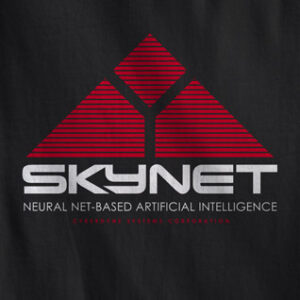
A distributed autonomous organization seeks to address a myriad of challenges. As peers in a decentralized structure, the participants deliberate, vote, and reach
consensus.
Like in any organization, people are attracted to thoughts and ideas that meld well with their own. But what makes this so new? Long ago, when representative governments or councils were created, the community decided to allow a few to manage the needs of the many.
What is so different? Our interfaces have changed. The way we engage has expanded and no longer restructured to verbal or hand-delivered written communication. In written communication, there is a thought. I stare at my computer screens; my pen is poised over a tablet as I use script to write notes or the keyboard to chat across multiple instant messaging applications. While staring at a word processor, PowerPoint presentation, or spreadsheet, I can engage and share with people spread across the planet using my cameras, speakers, and microphones.
A distributed Autonomous Organization is simply the grouping of people using technology to widen the breadth of participation. No longer restricted to location, we can continue to expand networks and engage with our peers.
I am confused. I thought the goal of a democratic society was to ensure each citizen of age had the ability and the right to vote. In 2020 there was and still is a pandemic often in history there have been natural disasters these challenges create issues voters have to consider when attempting to voice their intent on who shall represent them at a city, municipal, county, state, or federal level.
Many legislatures, Secretaries of State, or Lieut. Governors decided to expand the ability for voters to vote by mail. Our previous president argued mail-in voting was subject to fraud and built a case or better-said conspiracy theory that would allow him to contest the election of Joe Biden as the 46th president of the United States. Now the GOP is busy attempting to rewrite the law that will remove the ability of those unable to attend the voting place to use mail-in ballots. Why one should ask! To restrict the number and class of people who can vote in a democracy is unacceptable. Our political class should wish and work and make sure our democratic process of voting enables each of us the ability and the right to vote. Any attempt to limit someone’s ability to vote should be classed as a criminal act. By making this statement one could easily argue the GOP are criminals.
Often in history, those who seek power seek to suppress those who wish to also participate. We can only hope the good people of this country will decide that we are a free nation built upon laws that engender respect and seek to include everyone.
A long time ago, while installing Voice, Video, and Digital services on Trading Rooms in London and on Wall Street, stories of dis-information and the ability to manipulate the market were often told around the Bar at Harry’s on Hanover Square. Today we see manipulation in the political and economic spheres capable of alternating world order and drives nations into Civil war.
We must find a way of removing the risk of misinformation and restore truth and fair play into everything we hear and do.